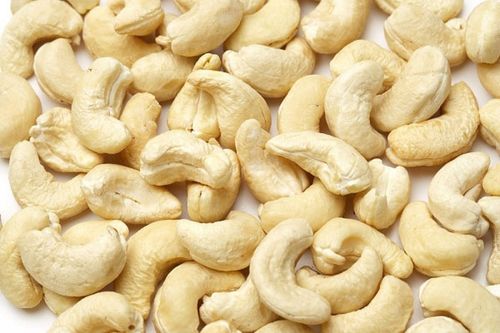This is an automatically translated article.
Oats are foods that contain a high amount of fiber, including soluble fiber. Therefore, it can help lower cholesterol and blood sugar levels. However, these effects do not mean that oats are good for everyone. This article will detail the uses of oats as well as possible warnings or side effects when using this product.
1. Oats
Oats are food of plant origin. Oats are composed of the oat seed (often used as food), the leaves and stem (oat straw) and the bran (the outer shell of the oat grain). The leaves, stem and oat bran are commonly used medicinally.
Oat bran and whole oats are used for people with high blood pressure, high cholesterol, diabetes patients, or patients with digestive problems such as: irritable bowel syndrome, limb disease. small bowel cysts, inflammatory bowel disease, diarrhea and constipation. In addition, they are used to prevent diseases such as: heart disease, gallstones, colon cancer (colon cancer) and stomach cancer.
Oats are most commonly used to help lower cholesterol and reduce the risk of heart disease. Its mechanism of action can be understood as follows: Oats can help lower cholesterol and blood sugar levels and control cravings by causing a feeling of fullness in the patient. Oat bran will affect and block the absorption from the intestines of substances that are at risk of heart disease, high cholesterol and diabetes. In addition, oats also work to reduce swelling on the skin when applying oats to that skin area.

Yến mạch giúp làm giảm nguy cơ mắc bệnh tim
2. Uses of oats
2.1. Oats are effective for heart disease and lower cholesterol
Heart disease: Studies have shown that foods high in fiber can be used as part of a low fat and cholesterol diet to help prevent heart disease. In fact, oat bran contains a very high fiber content. Whole grain oat products can provide 750mg of soluble fiber. Foods containing whole oats may be labeled with a health claim to reduce the risk of cardiovascular disease when included in a diet low in saturated fat and cholesterol. Lowers Cholesterol: Eating oats, oat bran, and other soluble fibers may modestly reduce total cholesterol and low-density lipoprotein (LDL) cholesterol when consumed as part of a low-fat diet. saturation. For each gram of soluble fiber (beta glucan) eaten, total cholesterol decreased by about 1.42mg/dL and LDL by about 1.23mg/dL. Eating 3-10 grams of soluble fiber can lower total cholesterol by about 4-14mg/dL. However, increased amounts of soluble fiber and an increase of more than 10 grams per day do not seem to increase its effectiveness. Eating three bowls of oats (equivalent to 28 grams of oats in a serving) per day can reduce total cholesterol by about 5mg/dL. Instant oat products such as oat cakes, oat bran oatmeal... may differ in their cholesterol-lowering effects, because it depends on the total fiber content of each product. Whole grain oat products may be more effective than foods containing oat bran and the soluble fiber beta glucan in lowering total and LDL cholesterol. The Food and Drug Administration (FDA) recommends that you drink about 3 grams of soluble fiber daily to lower blood cholesterol levels. However, this recommendation is not consistent with the study results. According to controlled clinical studies, at least 3.6 grams of soluble fiber daily is needed to be meaningful for lowering blood cholesterol.
2.2. Oats may be effective for diabetes and stomach cancer
Diabetes: Eating oats and oat bran for 6 weeks is likely to reduce pre-meal blood sugar, 24-hour machine sugar, and insulin levels in people with type 2 diabetes. Eating 50-100 grams of oats instead of other carbohydrates lowers blood sugar after meals in some people. In the long run, eating 100g of oats as a substitute for other carbohydrates will have a long-lasting effect on blood sugar. Furthermore, some evidence suggests that consuming 50 grams of oat bran per day (which contains about 25 grams of soluble fiber) may be more effective than a standard moderate-fiber diet (about 24 grams per day). grams) recommended by the American Diabetes Association (ADA). Stomach cancer: People who eat oats and oat bran seem to have a lower risk of stomach cancer than those who don't.
2.3. Oats may not be effective for colon cancer, high blood pressure
Colon cancer: People who consume oat bran and whole oats do not seem to have a reduced risk of colon cancer. In addition, dietary fiber intake of oat bran was not associated with the risk of colon tumor recurrence. High blood pressure: Eating oats such as oatmeal or oat cereal does not reduce blood pressure in men with high blood pressure.

Yến mạch không làm giảm huyết áp ở những nam giới có huyết áp cao
2.4. There is no clear evidence for the effect of oats on some other conditions
Brain function: Early research shows that taking green oat extract (Neuravena) might improve the speed at which brain function is performed in healthy adults. Dry skin: Using a lotion containing oat extract seems to improve dry skin. Preventing fat redistribution syndrome in people with HIV: Eating a high-fiber diet that includes: oats, with enough nutrients for energy and protein, can prevent the buildup of fat. obesity in people with HIV. An increase of 1 gram of fiber in the entire diet can reduce the risk of fat accumulation by 7%. Ulcerative colitis : Early research shows that using oat products can reduce symptoms and prevent symptoms. prevent recurrence of ulcerative colitis. Itchy skin in people with kidney disease: Some early research suggests that rubbing a lotion containing oats in it reduces skin itching in people with kidney disease. The lotion seems to work as well as the antihistamine hydroxyzine 10mg. In addition, oats also work for a number of other conditions. However, these effects have not yet been proven. Examples include: anxiety or restlessness, weak bladder, irritable bowel syndrome, preventing fat from being absorbed from the intestines, constipation, gout, inflammatory bowel disease, joint and tendon disorders, mental disorders flora, skin diseases, ....
3. Some side effects and warnings
Oat bran or whole grain oats are apparently safe for everyone when taken as a processed food. Because whole oats can cause intestinal gas and bloating. To minimize side effects, start with a low dose and increase it slowly to the desired amount. As the body gets used to oats, these side effects may disappear.
Solutions containing oat extract are probably safe to use on the skin. However, applying products containing oats to the skin can cause some people to develop breakouts.
Some warnings when using oats:
Pregnant women and nursing mothers can use oat bran or whole oats. However, these people should consume oats in their processed form. If you have problems such as difficulty swallowing or chewing food, you should avoid eating oats. Because consuming oats without chewing well can cause a risk of intestinal blockage. Digestive disorders should avoid eating oat products. Because digestive problems can prolong the time it takes for food to be digested, there may be a risk that the oats will block the intestinal tract.

Tránh ăn yến mạch nếu bạn bị khó nuốt
4. Dosage
Scientists study and give the dosage to use by mouth as follows:
For high cholesterol: use 56-150 grams of pure oat products such as: oat bran or oatmeal , which contains 3.6-10 grams of betaglucan (soluble fiber) daily as a low-fat diet.
To reduce blood sugar in patients with type 2 diabetes: use a fiber shoe product such as whole oats containing 25 grams of soluble fiber daily, 38 grams of oat bran or 75 grams of flour. Dry oats contain about 3 grams of betaglucan.
Vinmec International General Hospital is the address for examination, consultation, treatment and prevention of diseases. When performing the medical examination and treatment process at Vinmec International General Hospital, customers will be welcomed and used modern facilities and standard machinery along with medical services. facilities under the guidance and advice of good doctors, well-trained both at home and abroad.
Please dial HOTLINE for more information or register for an appointment HERE. Download MyVinmec app to make appointments faster and to manage your bookings easily.
Reference source: webmd.com












